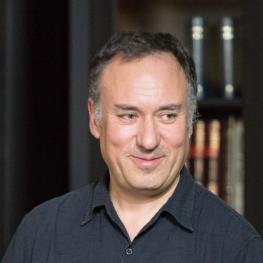The Emergence of Hasidic Nigunim: Teachings and Melodies
Zoom Webinar
Yam-Bim-Bom or Ai-Dee-Dai? The early Hasidim pronounced both to be kosher as long as words did not burden the intentions of the heart. This talk will explore Ukrainian Hasidic sources about music and show how Hasidic thought finds expression in sounds.
About the Series "Songs without Words: Nigunim over Time"
Judaism has a musical tradition of tunes sung repetitively without words. These melodies, called nigunim, are as open to new interpretation as they are evocative of past worlds. This series of online lectures follows the winding paths of nigunim and their singers, from the earliest Hasidic Jews to contemporary professional musicians. They will bring to life musical worlds ranging from the synagogue to Spotify, showing how men and women have adapted the tradition for ritual, emotional expression, and art.
Featuring
Michael Lukin
Hebrew University of Jerusalem
Michael Lukin studies the traditional culture of Yiddish speakers from ethnomusicological, folkloristic, and historical perspectives. His research explores the semiotics of various musical genres, encounters with non-Jewish traditions, and the politics of Yiddish folklore scholarship. At the Katz Center, he will analyze the older layers of the Hasidic paraliturgical wordless chants (nigunim), aiming to outline their regional and Jewish contexts, their ties with other musical genres prominent among Yiddish speakers, and their musical semantics. Lukin completed his Ph.D. at the Hebrew University of Jerusalem with a dissertation titled “The Yiddish Folk Song: Poetics and Music.” He has previously been a Polonsky Fellow at Oxford and a Mandel-Scholion postdoctoral fellow at the Hebrew University of Jerusalem; he has taught at The Hebrew University and Bar-Ilan University.
Cosponsors
Cosponsored by the Lowell Milken Center for Music of American Jewish Experience at the UCLA Herb Alpert School of Music. We gratefully acknowledge the support of the Klatt Family and the Harry Stern Family Foundation.
